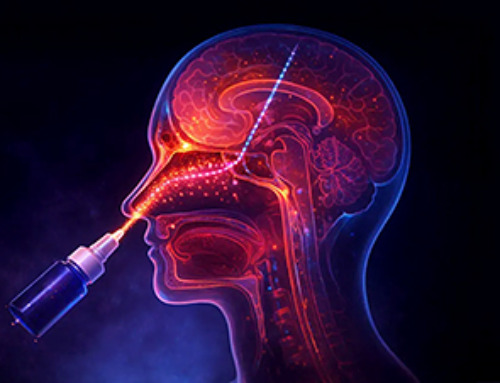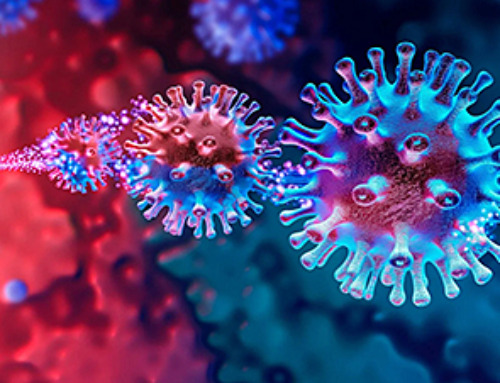Phthalate affects egg formation in C. elegans, resulting in abnormal chromosome numbers.
A recent study conducted on roundworms has discovered that a common plastic ingredient can cause DNA strand breaks, leading to egg cells with an abnormal number of chromosomes. The research, led by Monica Colaiácovo from Harvard Medical School, was recently published in the journal PLOS Genetics.
Benzyl butyl phthalate (BBP) is a chemical that makes plastic more flexible and durable, and is found in many consumer products, including food packaging, personal care products, and children's toys. Previous studies have shown that BBP interferes with the body's hormones and affects human reproduction and development, but the details of how it impacts reproduction have been unclear.
Experimental Approach
In the new study, researchers tested a range of doses of BBP on the nematode Caenorhabditis elegans and looked for abnormal changes in egg cells. They saw that at levels similar to those detected in humans, BBP interferes with how newly copied chromosomes are distributed into the sex cells. Specifically, BBP causes oxidative stress and breaks in the DNA strands, which lead to cell death and egg cells with the wrong number of chromosomes.

Based on these findings, the researchers propose that BBP exposure alters gene expression in ways that cause significant damage to the DNA, ultimately leading to lower-quality egg cells with abnormal chromosomes. The study also showed that C. elegans metabolizes BBP in the same way as mammals, and is impacted at similar BBP levels that occur in humans, suggesting that C. elegans is an effective model for studying the impacts in people. Overall, the study underscores the toxic nature of this very common plastic ingredient and the damage it causes to animal reproduction.
The authors summarize: "Here, examining the female germline in the nematode C. elegans, this study found that a level of exposure within the range detected in human serum and urine, alters gene expression linking increased germline oxidative stress with compromised genomic integrity and errors in meiotic chromosome segregation."
Reference: "Exposure to benzyl butyl phthalate (BBP) leads to increased double-strand break formation and germline dysfunction in Caenorhabditis elegans" by Ayana L. Henderson, Rajendiran Karthikraj, Emma L. Berdan, Shannan Ho Sui, Kurunthachalam Kannan and Monica P. Colaiácovo, 24 October 2024, PLOS Genetics.
DOI: 10.1371/journal.pgen.1011434
News
Molecular Manufacturing: The Future of Nanomedicine – New book from Frank Boehm
This book explores the revolutionary potential of atomically precise manufacturing technologies to transform global healthcare, as well as practically every other sector across society. This forward-thinking volume examines how envisaged Factory@Home systems might enable the cost-effective [...]
New Book! NanoMedical Brain/Cloud Interface – Explorations and Implications
New book from Frank Boehm, NanoappsMedical Inc Founder: This book explores the future hypothetical possibility that the cerebral cortex of the human brain might be seamlessly, safely, and securely connected with the Cloud via [...]
Global Health Care Equivalency in the Age of Nanotechnology, Nanomedicine and Artificial Intelligence
A new book by Frank Boehm, NanoappsMedical Inc. Founder. This groundbreaking volume explores the vision of a Global Health Care Equivalency (GHCE) system powered by artificial intelligence and quantum computing technologies, operating on secure [...]
Miller School Researchers Pioneer Nanovanilloid-Based Brain Cooling for Traumatic Injury
A multidisciplinary team at the University of Miami Miller School of Medicine has developed a breakthrough nanodrug platform that may prove beneficial for rapid, targeted therapeutic hypothermia after traumatic brain injury (TBI). Their work, published in ACS [...]
COVID-19 still claims more than 100,000 US lives each year
Centers for Disease Control and Prevention researchers report national estimates of 43.6 million COVID-19-associated illnesses and 101,300 deaths in the US during October 2022 to September 2023, plus 33.0 million illnesses and 100,800 deaths [...]
Nanomedicine in 2026: Experts Predict the Year Ahead
Progress in nanomedicine is almost as fast as the science is small. Over the last year, we've seen an abundance of headlines covering medical R&D at the nanoscale: polymer-coated nanoparticles targeting ovarian cancer, Albumin recruiting nanoparticles for [...]
Lipid nanoparticles could unlock access for millions of autoimmune patients
Capstan Therapeutics scientists demonstrate that lipid nanoparticles can engineer CAR T cells within the body without laboratory cell manufacturing and ex vivo expansion. The method using targeted lipid nanoparticles (tLNPs) is designed to deliver [...]
The Brain’s Strange Way of Computing Could Explain Consciousness
Consciousness may emerge not from code, but from the way living brains physically compute. Discussions about consciousness often stall between two deeply rooted viewpoints. One is computational functionalism, which holds that cognition can be [...]
First breathing ‘lung-on-chip’ developed using genetically identical cells
Researchers at the Francis Crick Institute and AlveoliX have developed the first human lung-on-chip model using stem cells taken from only one person. These chips simulate breathing motions and lung disease in an individual, [...]
Cell Membranes May Act Like Tiny Power Generators
Living cells may generate electricity through the natural motion of their membranes. These fast electrical signals could play a role in how cells communicate and sense their surroundings. Scientists have proposed a new theoretical [...]
This Viral RNA Structure Could Lead to a Universal Antiviral Drug
Researchers identify a shared RNA-protein interaction that could lead to broad-spectrum antiviral treatments for enteroviruses. A new study from the University of Maryland, Baltimore County (UMBC), published in Nature Communications, explains how enteroviruses begin reproducing [...]
New study suggests a way to rejuvenate the immune system
Stimulating the liver to produce some of the signals of the thymus can reverse age-related declines in T-cell populations and enhance response to vaccination. As people age, their immune system function declines. T cell [...]
Nerve Damage Can Disrupt Immunity Across the Entire Body
A single nerve injury can quietly reshape the immune system across the entire body. Preclinical research from McGill University suggests that nerve injuries may lead to long-lasting changes in the immune system, and these [...]
Fake Science Is Growing Faster Than Legitimate Research, New Study Warns
New research reveals organized networks linking paper mills, intermediaries, and compromised academic journals Organized scientific fraud is becoming increasingly common, ranging from fabricated research to the buying and selling of authorship and citations, according [...]
Scientists Unlock a New Way to Hear the Brain’s Hidden Language
Scientists can finally hear the brain’s quietest messages—unlocking the hidden code behind how neurons think, decide, and remember. Scientists have created a new protein that can capture the incoming chemical signals received by brain [...]
Does being infected or vaccinated first influence COVID-19 immunity?
A new study analyzing the immune response to COVID-19 in a Catalan cohort of health workers sheds light on an important question: does it matter whether a person was first infected or first vaccinated? [...]





















